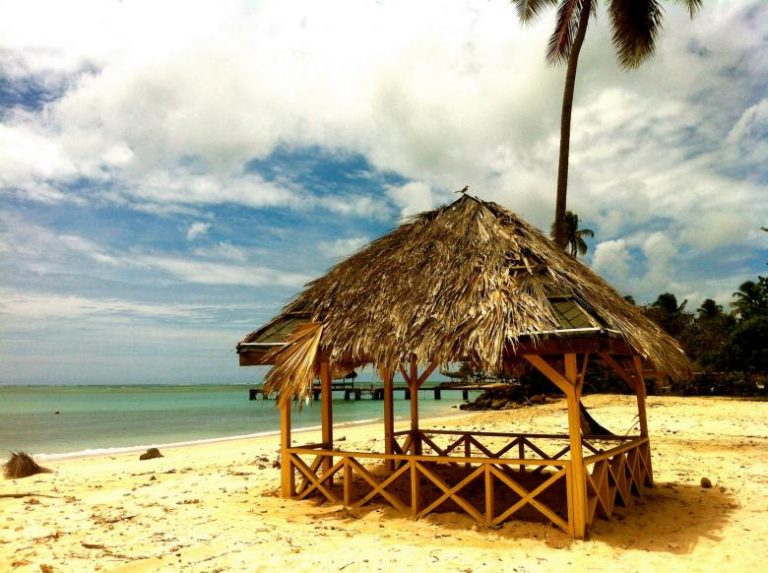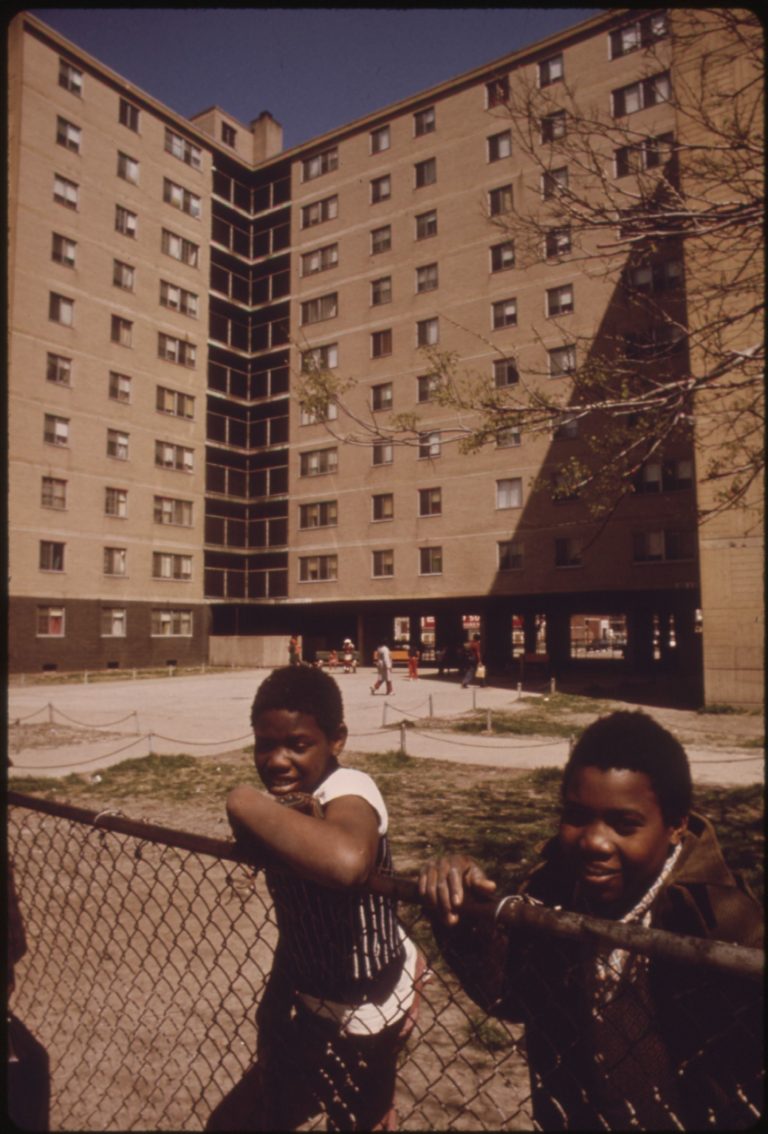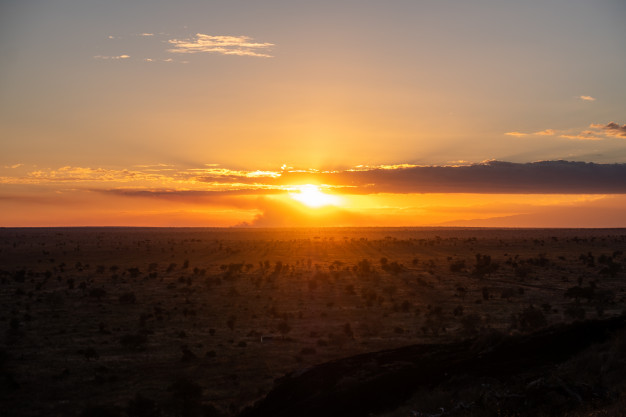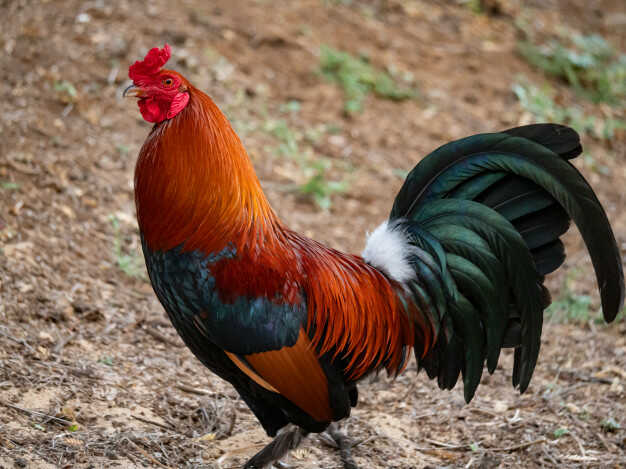Eye for a Tooth
Alhaji Sanni was seething but you would not have known by looking at him. To everyone in the room, the urbane sixty-somethingyear old was a picture of dignified tranquility. He was even humming under his breath which made appearances more deceptive.
Alhaji knew he had to control his temper.
‘Hypertension is a silent killer,’ Doctor Selathe had said. Doctor Ahmed nodded sagely in agreement before adding, ‘And it is not to be joked with.’ Both doctors then beamed over their Samsung tablets in the spotless consulting suite at the spanking Châteaux Monmieux Clinic on the pristine shores of Lake Geneva.
‘Selah!’ Alhaji responded, his eyes twinkling.
The bespoke-suited doctors permitted themselves a chuckle, again in unison. It was Alhaji’s private joke, a play on the first syllables of their names. They no longer found it funny but knew better than not to humor the patient, a longstanding one at that, who happened to be one of the richest men in the world.
Alhaji doubted that anger had anything to do with his blood pressure. If only he could curb his fondness for putting salt in everything, he was sure, all would be well. Whatever anyone else said, even if they were two of the most eminent physicians in their field, Alhaji always made up his own mind. There was something about billionaires and that kind of stubborn self-belief.
‘Aargh, Alhaji is singing which means that his own contribution is a sure banker?’
Alhaji took off his Panthere glasses, put them in their crocodile skin case and composed himself. Even if he believed that anger had nothing to do with hypertension, he was taking no chances.
‘With due respect, Mr. President, you must be out of your mind.’
To say that His Excellency, President Aremu Oladipo, commander in chief of the armed forces and grand commander of the order of the federation, was taken aback would be to indulge in understatement. But he too was an expert at masking anger. You did not get to become leader of the world’s most querulous people without knowing how to take an insult.
‘Ah-ah, Alhaji, I beg your pardon – there is no need for such language now.’
‘No, I beg your pardon, Mr. President.’ Alhaji’s voice was rising. ‘Why should I contribute even one kobo not to talk of millions of dollars to that lackey?’
‘Because I, the president, say so,’ the president thought but did not utter the words. Instead he smiled expansively. It was the practiced smile that had charmed a nation into electing him twice. Regrettably, it had not been enough to get them to change the constitution to give him a third term.
Yes, the candidate he was pushing to succeed him was a lackey but so what? That was why he wanted the man. The next best thing to running was to put someone he could control. He would become the master puppeteer, pulling strings from the wings, as chairman of the party’s board of trustees.
The president made a mental note to check with the director of state security on arresting Dr. Kenule Ani. It was complete nonsense, the height of betrayal, what the Senate President had done, using his renowned eloquence on the floor of the National Assembly to destroy the ‘third-term project.’ Incredible really, coming from someone who would never have been senator but for Oladipo’s intervention with party officials. Just desserts were due and the politician from the Southeast would soon learn that the child who caused his parents not to sleep was thereby
condemned to sleeplessness as well.
The president considered himself quite the magnanimous person in ordinary life but this was politics. If the next man took one of your eyes, you made sure to take both of his. And those of his family. And his friends. You smote his lineage and scattered their ashes so that others would know you had no cheek to turn and not dream of messing with you.
‘Ah-ah, Alhaji, cool down, it will work out for you and for all of us.’ the president laughed, returning his attention to matters at hand. ‘He will be elected and he will do our bidding, trust me.’
‘That buffoon will do you and whose bidding, Mr. President?’ Alhaji had somehow got his voice back under control. ‘I’m sorry but I cannot be part of this charade.’
Alhaji Sanni looked around him for support. The president had gathered the richest businessmen in the country, ‘captains of industry’ they were called. There were no aides in the chamber. It was that kind of meeting. Only the president and the big men gathered around the table would be able to speak to what had transpired in the room which meant that no one would.
Alhaji Sanni wondered how anyone in his right mind would consider Fortuna Johnson a sellable candidate. The man was an electoral disaster waiting to happen even if, as usual, the vote would be rigged. This was after all a man whom The Economist had called a ‘wimp’ and WSJ, ‘clueless.’ He could not be counted on to win an election in his hometown talk less of the national polls.
Alhaji had come therefore expecting robust dialogue on the Johnson candidacy and perhaps agreement on someone more credible. Instead, after pleasantries, the president began announcing donations that he, the president, in his infinite wisdom, had decided for each of the men gathered here.
‘Tony, yours is ten million.’ This was to Anthony Eluemuno, chairman and controlling shareholder of Africa United Bank. He was also heavily invested in hotels and food processing plants.
‘Mike, yours is fifteen million.’ Michael Adeniyi, Jr was the owner of Shine, the biggest phone company in the country, and several oilfields.
‘Armani, will just give us twelve million.’ Orji Nnamani or ‘Armani’ as he liked to be called. Jack of many trades, including shipping and media, Orji had gone into business in his early twenties after rustication from university for leading student demonstrations that turned violent. He never went back to complete his degree but the vice-chancellor who signed his expulsion papers now worked for him as general manager.
And so it went around the room, until the president had tallied an election war chest that would put many small countries’ budgets to shame. There was a glossy folder marked ‘Health-is-Wealth Foundation’ on the table in front of each man. The president did not talk about the folder and his invitees did not ask but everybody understood why it was there. Inside was a single sheet of paper bearing the details of the foundation’s bank account.
The president announced Alhaji Sanni’s donation last. It was to be the biggest contribution. Alhaji did not quarrel with that. He was richer than everybody in the room put together and they knew it. His problem was with the president’s double imposition.
Surely, the president would have had the courtesy to consult with each of them first? They had all donated handsomely to his elections. The first time, he came literally cap in hand. Alhaji remembered him sitting at the edge of the chair in Alhaji’s penthouse office on Sanni Towers, answering ‘yes sir’ to everything. Now, eight years later, he was full of audacity. Alhaji shook his head. Politicians were all the same – a little time in office and they started to think that after God, it was them.
Alhaji Sanni had expected others here to back him and pour sand into the president’s garri. Money was power after all. With the vast fortunes at their disposal, they could combine to bring down any government.
‘Who else is coming?’ Alhaji had asked when Dr. Abdul, the president’s chief of staff, called with the invitation. Abdul coughed, hesitating but Alhaji insisted. ‘My friend, talk now or I’ll call the president myself.’ Abdul garbled the names and it was a roll call of the country’s richest. Alhaji was hardly surprised. Party primaries were a mere two months away.
Sitting across the table was Alhaji Inuwa. The military contractor and international arms dealer had just donated seven million dollars to Caltech where seven of his nineteen children had taken their degrees. Inuwa was known to be a no-nonsense fellow. Today, he had simply nodded when the president requested him to ‘do the same as you did for the Americans but for a more worthy cause.’
Alhaji Sanni glared at Inuwa but the latter responded with a shrug.
Alhaji Sanni then tried to make eye contact with Orji from whom Alhaji expected a typically hotheaded response. The Armani-clad university dropout stared into space.
Realizing it was up to him alone, Alhaji cleared his throat. Immediately, he felt a dig under the table. It was Chris Senibo, physician to the president. The popular narrative was that the doctor of internal medicine had been rewarded for his professional services with fat bank accounts in Dubai. Alhaji knew the true story. Senibo was the first family’s front for laundering their money into the Belizes and Panamas of this world.
Alhaji made to speak again but received an even sharper nudge. He decided he’d had enough. ‘With all due respect Your Excellency, I don’t know if there is anything else Mr. President would like to discuss.’
It was a breach of protocol bordering on an insult. Alhaji knew it, the president knew it and the rest of the people in the room knew it. Still, the president’s visage wasn’t broken.
‘Chai, Alhaji, is that how it has reached?’ The toothpaste smile. ‘You don’t even have time for poor people like us again?’
Nervous laughter rippled around the table.
‘No, Mr. President, it is not like that.’ Alhaji knew when to back down. His point was made. ‘I am just concerned that we might be keeping you from other important matters of state.’
‘You’re quite right, Alhaji.’ the president conceded. ‘As always, I thank you for your kind consideration.’
The president also knew how to stop people stealing his thunder. Still smiling grandly, he stood up and went round the table to shake each man, all of them having scrambled up as soon as he rose.
When the president got to Alhaji, he said, ‘Don’t worry about it, Alhaji, we’ll find another way to make up your share.’ Before Alhaji could think of a reply, the president had moved on to the man after to him. Oba Odubekun, construction, real estate and flour mills, a former chairman of the stock exchange, bowed very low as the president shook him.
And then the president was gone, departing in a flourish of flowing robes by the ornate door with the coat of arms which opened automatically as he approached it.
Alhaji did not waste time with the backslapping and ribaldry that the group broke out into. He picked up the folder on the table and headed for the door opposite that by which the president had withdrawn.
‘Ah-ah, Alhaji, you won’t even greet your brother?’
Eteh Iniobong had stepped into his path, arms outstretched. Alhaji brushed past him. He had little regard for Iniobong ordinarily and more so now. The man’s claim to fame was the giant oil field he had assigned to himself, through a sham Mauritius company, during his time as minister of petroleum. The billion dollars that a Russian oligarch subsequently paid for the company was what gave Iniobong a place at the table today.
Alhaji did not like people who became rich from public office. ‘The money to respect,’ he often told his aides, ‘is the money steeped in the sweat of your brow.’
He admired only entrepreneurs like Inuwa and Orji who, like him, had thrived in the cut-throat world of business. True, Orji had done a term as state governor and plundered the treasury as was the fashion but he could be forgiven. He was certifiably rich before he ran for office. The same could not be said of Iniobong, a petroleum economist of modest means prior to being plucked from obscurity by his former classmate of a president.
A multitude of aides, clutching phones and walkie-talkies, were waiting outside for their affluent patrons. They all jumped up as the door opened and Alhaji strode out. Aliko, Alhaji’s nephew and personal assistant, rushed to him and took the folder, handing over Alhaji’s diamond encrusted GoldVish phones.
As Alhaji checked to see who had called him, Aliko barked instructions over a two-way radio. Heading for the airport in his convoy of black stretch SUVs, Alhaji pored over the latest edition of Forbes Billionaires – anything to take his mind off the vexatious events at the Villa. He was still the richest man in Africa. It thrilled him to have once again surpassed Dangote, Oppenheimer and Sawiris. He was even up a few places on the global list.
‘Ah-ha,’ he told Aliko when the assistant first handed the magazine to him. ‘it is with cement that I have cemented my position on this list.’
Alhaji had laughed at his own pun wondering how he could use it with Selathe and Ahmed next time he saw them. For years, he had been the only one who could import cement in the country.
‘Cement?’ queried, the then president Babacha. There would be two presidents after Babacha before the current oaf, Oladipo, was elected.
‘Yes, cement,’ echoed Alhaji. ‘Just trust me.’
Alhaji was Babacha’s sole supporter of means when the unfancied tailor from Kano, perennially in dark glasses, decided to run for the state assembly. Defying the odds, Alhaji’s money ensured that not only did Babacha win but that he became speaker and then went on to national prominence as a senator before vying for president. When Babacha was swept into the Villa by a landslide, Alhaji tabled his demand.
‘I do not understand, Alhaji, gaskiya, but your wish is my command.’
Anyone else would have asked for an oil license. Not Alhaji. He was more interested in the construction boom that oil was fueling. The more the cranes went up, the more prized cement became. But only the hardiest entrepreneurs could deal in cement on a grand scale. Even smugglers had no appetite for something so heavy which had to be kept dry always.
Alhaji’s business was uniquely positioned. His fleet of trucks had become the largest in the land to distribute another commodity that needed careful handling. A previous president, in similar circumstances as Babacha, had signed the customs order making Alhaji the only person who could import sugar.
‘Kai, this thing is a no-brainer,’ Alhaji told his bemused executives. ‘Once we corner cement too, it will be like we are printing our own money.’
Cement was also the foundation of Alhaji’s friendship with Oba Odubekun, him of the recurrent ‘Alhaji, give me discount, I beg.’ Alhaji never failed to oblige and Odubekun never failed to outbid his rivals for the biggest construction projects. If that didn’t count for something in situations like today’s, perhaps it was time to reconsider the discounts. How did they say it? Do me, I do you, God no go vex. Alhaji grunted.
His thoughts drifted more affectionately to Chief ‘Father-father’ Kalu, the granddaddy of all movers and shakers. Father-father’s success in cornering the stockfish market and becoming the original mutumin mai kudi – god of fat money – in the country, had convinced a precocious young Alhaji that controlling the trade in something consumed every day was the way to go. How Alhaji would have loved the phlegmatic chief at today’s meeting. Alas, the old man was now too frail to travel even if he still cast an iron hand over stockfish from his ‘small London’ country home.
As the convoy swept into the airport, heading towards his gleaming Gulfstream, Alhaji noticed something wrong. His usually unflappable Israeli captain, Lev Aaronovich, was standing at the foot of the plane, furiously mopping his brow. The captain’s shirt was untucked and his tie askew.
‘Shalom, Alhaji,’ Aaronovich said as Aliko opened the door of the SUV.
‘Shalom, Lev,’ Alhaji responded. ‘For an African, you are looking very white.’
It was another of Alhaji’s stock jokes, in use since he had got the government to issue a passport, by presidential decree no less, to Aaronovich. Normally, Aaronovich laughed. Now he did not.
‘Sir, immigration just left the plane,’
‘What?’ Alhaji thundered, in disbelief. ‘How can?’
Aaronovich explained that armed immigration officers had ransacked the plane and impounded the Israeli crew’s passports. When Aaronovich protested, their leader pointed a gun in his face and sneered, ‘my friend, be very careful; you want us to give you your passport and arrest you instead?’
The billionaire was stunned. Alhaji Sanni’s premises and property were off limits to any kind of law enforcement. Everybody knew that. The heads of police, customs and immigration were all his ‘boys’ having been nominated by him. They also happened to be the beneficiaries of numbered Swiss accounts generously funded by the Sanni Group. Alhaji called the comptroller of immigration.
Bugaje answered on the first ring.
‘Yes sir, Alhaji sir, your boy is very loyal.’
‘Why did your men enter my plane?’ Alhaji was curt.
‘Wha-what do you mean, sir?’
‘Bugaje, look, don’t be stupid, ‘Alhaji was struggling to restrain himself. ‘Immigration boarded my plane just now and harassed my people and you’re asking me what I mean?’
‘What? So-so-sorry, sir, but I don’t …’ came the strangled reply.
‘You don’t what, Bugaje?’
‘To god who made me sir, I don’t know anything about it.’ Bugaje sounded genuinely confused. And petrified.
‘Well it happened, and I want to know why immediately!’ Despite himself, Alhaji was shouting.
‘Allah ya kiyaye, sir.’ Bugaje’s voice was ghostly. ‘I take god beg you, I will send a signal to all formations immediately and find out.’
‘If you value your job, you better call me back at once, you hear me?’ Alhaji ended the call before Bugaje could reply.
Alhaji got on the plane and asked Aaronovich to keep the engines running while he waited for Bugaje’s call. He was flying to Lagos for a ceremony the next day that promised to be momentous even by his standards. No one in the country had ever received, at a go, the number of cargoes of sugar and cement to be discharged at the port for the Sanni Group.
The ambassadors of China and Brazil where the shipments came from would be at Apapa with him, as would the vice-president and a constellation of other dignitaries. Saturation coverage from local and international media was assured – his PR team had ‘seen’ the chief correspondents in customary fashion.
A sizeable crowd of market women, trade unionists and students had also been rented to sing Alhaji’s praises at the event. A bit of vulgarity every now and then was permissible, Alhaji mused, if nothing else to remind everyone, high and low, who was still the money god of all money gods.
Ten minutes later, as Alhaji tucked into some heavily salted kilishi strips that his crew had rustled up to becalm their boss, Aliko nervously brought the phone to Alhaji.
‘Sir, it is Joe.’
Joseph Makanujola was the CEO of Sanni Cement.
‘What does he want?’ queried Alhaji, tugging at some kilishi.
‘Erm, he wants to speak to you directly, sir.’ Aliko thrust the phone forward, shaking it to indicate urgency.
Alhaji glared at him but wiped his hands on an SG-monogrammed napkin and took the phone.
‘Yes, Joe, what is it?’
‘Sir, customs and navy have just boarded the vessels.’
‘Which vessels?’ Alhaji asked, his voice rising.
‘The ones carrying the sugar and the cement,’ came the reply. ‘They say they are impounding them to search for contraband.’
Alhaji was quiet for a moment. Rather than interfere, the navy always escorted Sanni’s ships into port to make sure they were given priority berths. The head of the navy was another of his boys. Once the ships docked, customs fasttracked clearance so that offloading could be completed within hours. No Sanni cargo had ever been stopped or delayed.
‘Did you talk to the chief of naval staff?’
‘Yes, sir,’ Joe answered.
‘And?’
‘He says he doesn’t know anything about it.’
Joe was expecting an explosion and braced himself but none came. Instead Alhaji Sanni’s voice on the other end of the line became rather normal, pleasant even.
‘Hmmm, okay-o and what about the customs comptroller?’ Alhaji asked.
‘His phones are switched off, sir.’
Alhaji smiled to himself.
‘Okay, Joe, stay on it while I make a few calls myself.’
Alhaji handed back the phone to Aliko and resumed his battle with the kilishi. He took his time to polish off the very last of the dried meat and then drank some orange juice, gazing out of the window at passenger airliners landing some distance away in the adjoining public airport. It had been over twenty years since he’d set foot on a commercial flight but he was still certain that the orange juice on his jets tasted better than in first class. Fate had been kind to him. But that was because he had learned to be the master of his own fate.
Alhaji asked Aliko for one of his phones. As soon as the GoldVish was in his hands, he punched a number.
‘Hello, Alhaji, sir,’ answered the managing director of Africa United Bank. ‘This one that you are calling personally, sir, I hope no problem?’
‘I want an urgent transfer.’
‘Oh okay, sir, what amount and to what account?’
‘Aliko will give you the details,’ Alhaji said. ‘It is to an organization called Health-is-Wealth Foundation.’
‘Ah, okay, sir, understood,’ came the bright reply. ‘Consider it done.’
Alhaji handed the phone to Aliko and resumed his gazing out of the window, a wry grin on his face.







